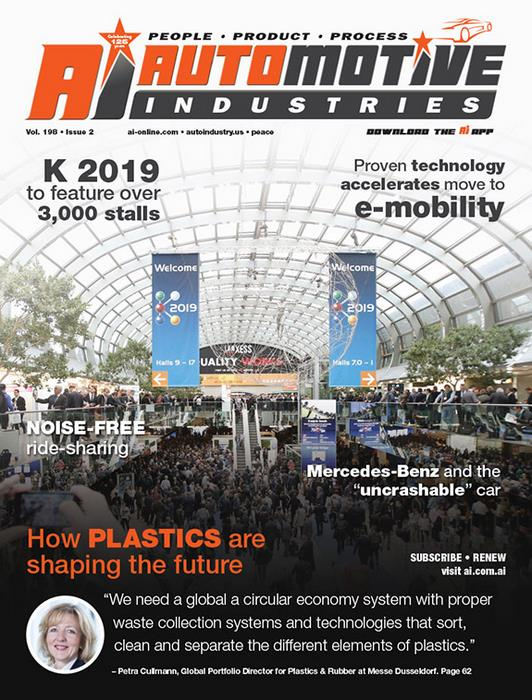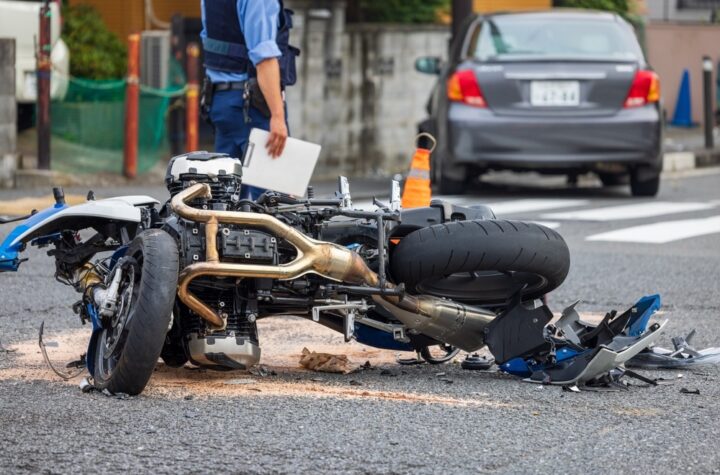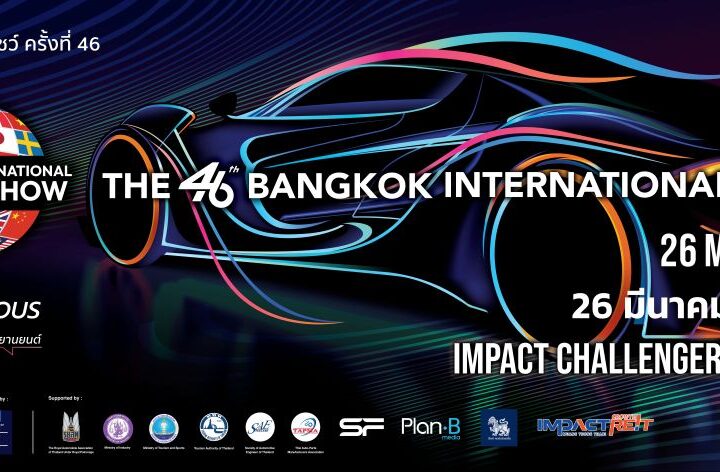
Visitors to the K 2019, The World’s No. 1 trade fair for plastics and rubber, will be able to see more than 3,000 companies from over 60 countries exhibiting new raw materials, products and production systems.
They will be housed in some 1.8 million square feet of exhibition area in the Düsseldorf, Germany, fairgrounds. More than 200,000 trade visitors from all over the world are expected to attend the event, which runs from October 16 – 23, 2019. K 2019 will again be the global marketplace for innovations where the industry players meet to demonstrate the sectors’ capabilities, discuss current trends and set the course for the future, according to the organizers. It will address current challenges in the industry especially in regard to “plastics for sustainable development” and “circular economy”. These topics will not only be highlighted at the exhibitors’ booths, but also in an ancillary program. The special forum “Plastics Shape the Future” will address packaging waste, marine litter and climate change as well as resource conservation, energy efficiency and recycling. “Plastics Shape the Future” will not only offer an international information and networking platform, but will also involve political and socially relevant groups to a greater extend with keynote speeches and speed talks. The Science Campus of K 2019 provides a forum for dialogue between science and business, in which sustainability will also be intensively examined from a technical point of view. In addition, the joint participation of the VDMA (German Engineering Federation) and its member companies will this time also focus on the topic of circular economy, say the organizers.
AI asked Petra Cullmann, Global Portfolio Director for Plastics & Rubber at Messe Dusseldorf, what are some of the “hot topics” to be tackled at K 2019. Cullmann: There are certain topics dominating the global polymer industry that are reflected in K 2019. First of all is sustainable development and circular economy. The plastics industry takes the debate in the media and among the public regarding plastic waste and microplastics in the environment very seriously. For the public it is easy to see what is to blame for this misery: plastic waste, which is generally simply thrown away by people. But plastics are too valuable to throw away without a second thought. We need a global circular economy system with proper waste collection systems and technologies that sort, clean and separate the different elements of plastics. The cleaner the recyclate, the more valuable the products that can subsequently be made out of it. K 2019 will give an overview of the current technologies and solutions and give an insight into the industry’s cooperation with different institutions. That´s why the topic circular economy will dominate the “Plastics Shape the Future” forum, Science Campus and the VDMA Pavilion. Another main topic of K 2019 will be digitalization of the valueadded chain and industry 4.0. It allows plastics processors to take advantage of the increasing amount of data created during all steps of the production process: material data, processing data, machine parameter, quality control etc. This is more than just automatization of production. We are now talking about smart processing – smart production – smart factory. We are talking about implementing intelligent algorithms (artificial intelligence, machine learning) to enable, for example, self-optimization of processing machines or improving the human-machine interface. A third hot topic will be functionality through material, process and design, featuring new materials and additive manufacturing, lightweight engineering, mobility (e-mobility) and biopolymers. Even after decades of intense scientific and industrial application, lightweight construction is still considered a crucial factor in the reduction of energy and fuel used for mobility. Regarding additive manufacturing, the days are gone when this technology was only used for prototype production. Faster generative production methods, lower equipment costs and better process control has led to a significant improvement and rising popularity of additive manufacturing processes. It is being applied more and more in mass production. Last, but not least, K 2019 will pay special attention to the question of young talent for the industry, both in science and in practical training. The central topics of K will be presented by participating universities, institutes, associations and promotion agencies in discussion rounds, lectures and selected exhibits and, of course, will be part of the exhibitor presentations and will be featured in the booths.
AI: How has the industry changed during the three years since K 2016? Cullmann: Asia’s influence in the global plastics industry has continued to grow. Nevertheless, North America and Europe are also posting solid growth rates. In the case of polyolefins, the shale gas-based quantities from North America are now complementing the established flows from the Middle East. Many plastic producers have secured inputs by the acquisition of established recycling companies in order to give them access to waste streams and recycling know-how. The aim is to be able to offer standardized types with recycled content in reliable quantities – in particular for technical applications in the automobile. The global plastics machinery industry has experienced a sustained all-time high, which is currently returning to normal. Nevertheless, the installed base in many production plants in the USA and elsewhere has been in operation for longer than average, and is therefore uncompetitive against new machinery.
AI: Please tell us more about the “Bioplastics Business Breakfast”. Cullmann: In cooperation with the specialist publication “Bioplastics Magazine” Messe Düsseldorf will host four events that focus on the future role and the market potential of biopolymers – both bio-based as well as biodegradable polymers. Future opportunities will feature as prominently as the pros and cons of biopolymers.
AI: Then there is “Rubberstreet”. What will visitors see and experience when they stroll down it? Cullmann: The Rubberstreet will once again be the home of rubber hot spots at K 2019. This window to the world of rubber and elastomers has been held since K 1983 in order to increase the visibility of the rubber industry and to highlight innovations that improve performance. The dedicated area is again home to both traditional rubber companies and compounders of thermoplastic elastomers. In addition to this special area, we will offer the “Rubber & TPE Pocket Guide”. This guide helps to identify relevant partners at the exhibition that deal with rubber and elastomers, including TPE. Our exhibitors represent the complete value chain from raw material and machinery suppliers to processors.
AI: Is K 2019 a place to do business, to stay up to date with the latest technology – or both? Cullmann: Both! Exhibitors and visitors from all continents come together in Düsseldorf in order to present and experience at first-hand leading-edge developments and products from this dynamic and innovative industry. Only the K trade show features such a high density of international product launches. This is where experts from the world of plastics and rubber inform decision makers from the automotive industry, packaging, E+E and communication, construction, medical engineering and the aerospace industry, about new and visionary areas of application for plastics and rubber materials. K is the benchmark for the entire industry and, of course, it is its global marketplace. Every time it comes to K in Düsseldorf the participating companies report a host of new leads, many of which lead to closed deals over the eight days of the trade fair. AI
















More Stories
Industry-standard switching & simulation systems from Pickering Interfaces on show at Space-Comm Expo
Bangkok International Motor Show 2025 – The Talk of Sensuous Automotive
SEPA and Bidgely Release Report on the Power of AI for Transportation Electrification